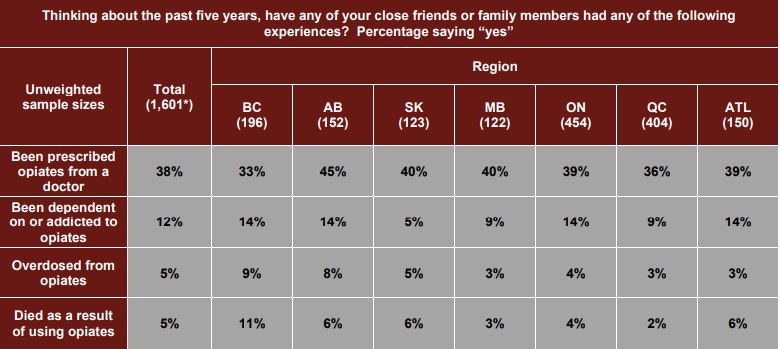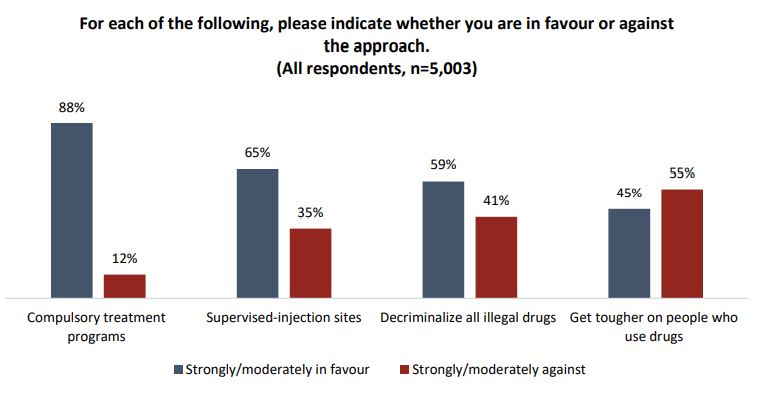B.C. had a record-breaking year for illicit drug overdoses in 2020, but a new survey by the Angus Reid Institute suggests people care less about opioid addiction than they were before the COVID-19 pandemic hit.

The survey says in February 2019, 42 per cent of Canadians polled were following the issues surrounding illicit drug overdoses closely. Now, that number has dropped to 16 per cent.
Angus Reid Institute president Shachi Kurl says it’s because the pandemic has taken precedence.

“The pandemic has occupied so much of the emotional, mental, and intellectual bandwidth of Canadians,” she said. “What that has meant is issues that we used to spend a lot of time talking about, such as opioid dependency and the opioid crisis, has really fallen down the list of priorities.
“But at the same time, even though people are not paying as much attention as they were in the past in a pre-pandemic world, that doesn’t mean they’re not perceiving the problem to be getting worse.”
In fact, the survey suggests seven-in-10 Canadians say the problem of opioid addiction has gotten worse in the last year.
In British Columbia there was a record-breaking 1,716 illicit drug overdoses last year.

Get weekly health news
The survey suggests 11 per cent of British Columbians know someone who has died from an overdose, while the national average is five per cent.
The survey also suggests Canadians are unsatisfied with their provincial government’s response to opioid addictions.

A mere three per cent of respondents say their provincial government is going a “very good” job, while 22 per cent say their provincial government is going a “very poor” job.
Notably, B.C. Premier John Horgan performed the worst on this issue in the poll, with two-thirds of British Columbians critical of the NDP government’s response.
The survey asked people what policy they would support to solve the crisis.
Nearly 60 per cent of respondents said decriminalization of drugs is the best answer, while 45 per cent believe the country should get tougher on those who use drugs.

The survey suggests the most supported approach is compulsory treatment for people who use drugs.
Under a compulsory treatment order, a hospital or mental health clinic will give you treatment even if you do not agree. Close to 90 per cent of those polled support this strategy.












Comments
Want to discuss? Please read our Commenting Policy first.